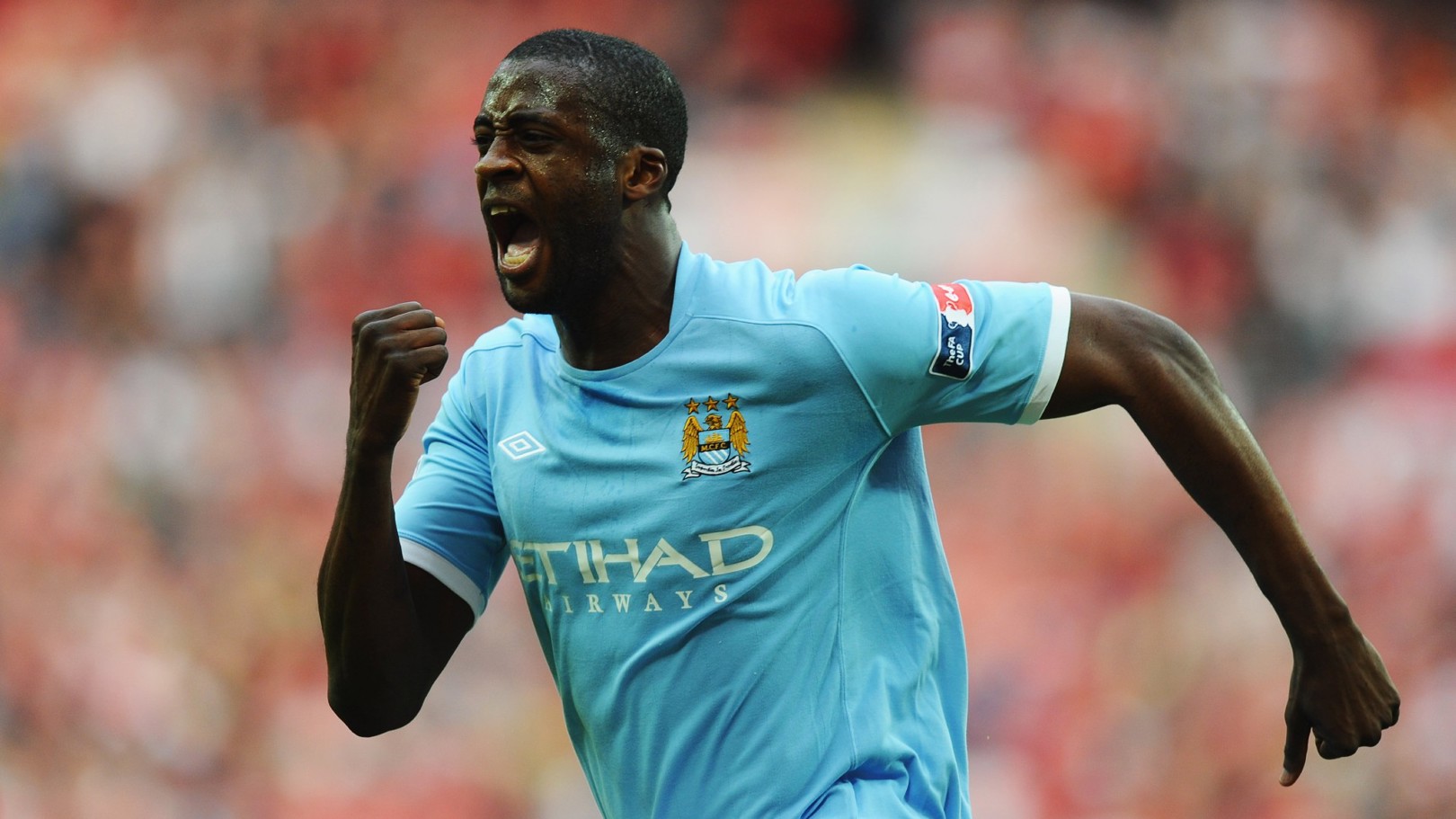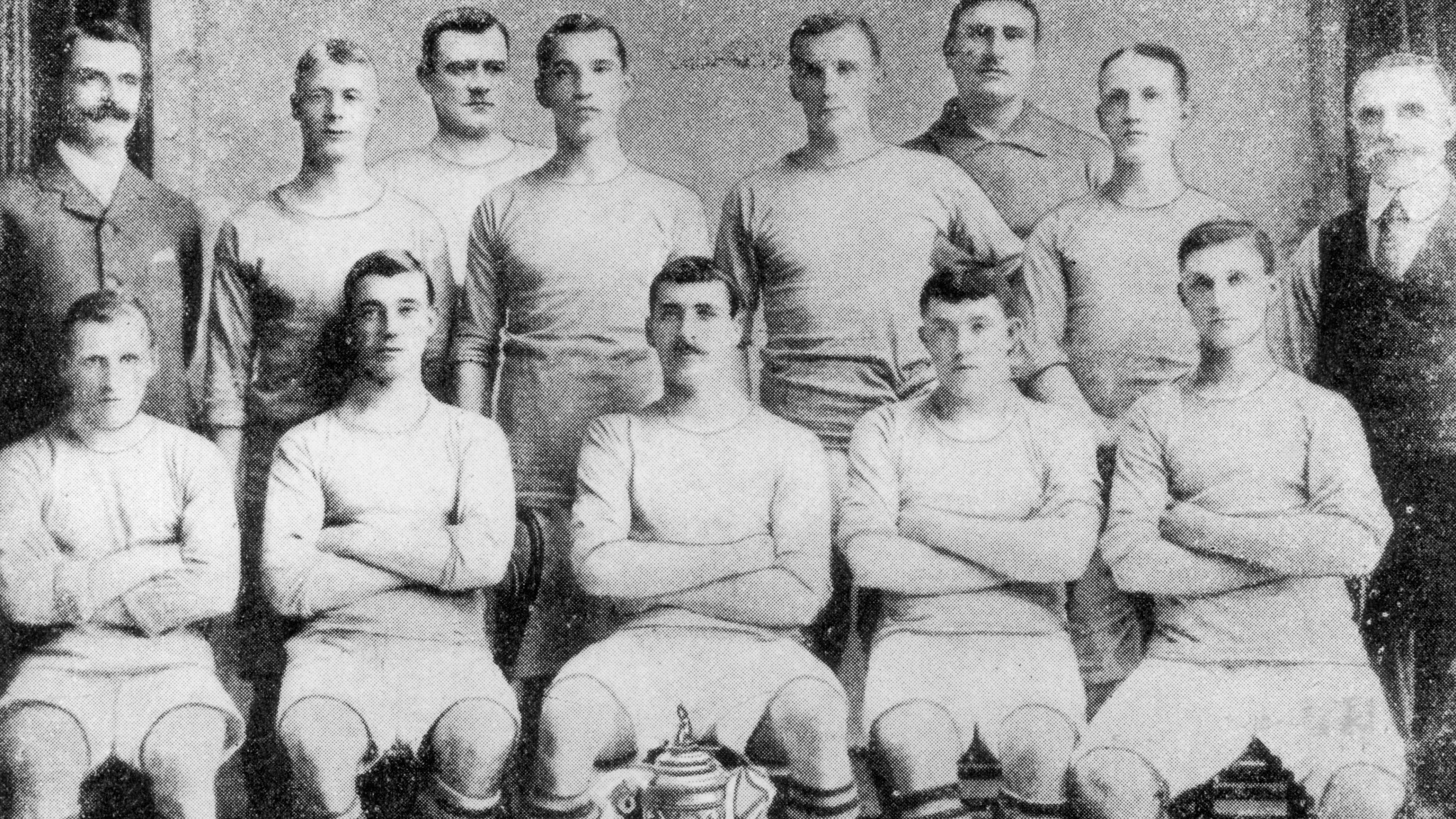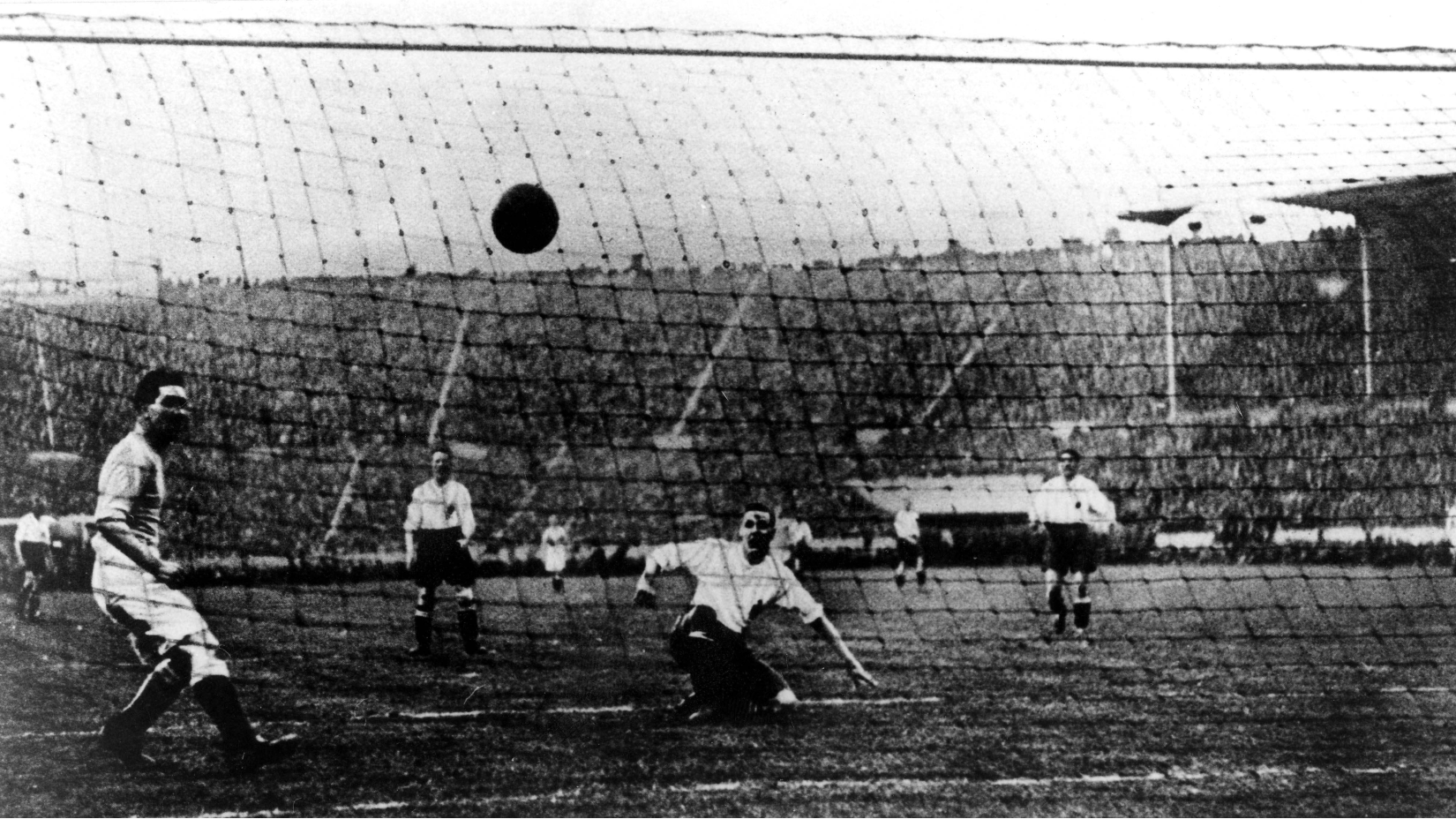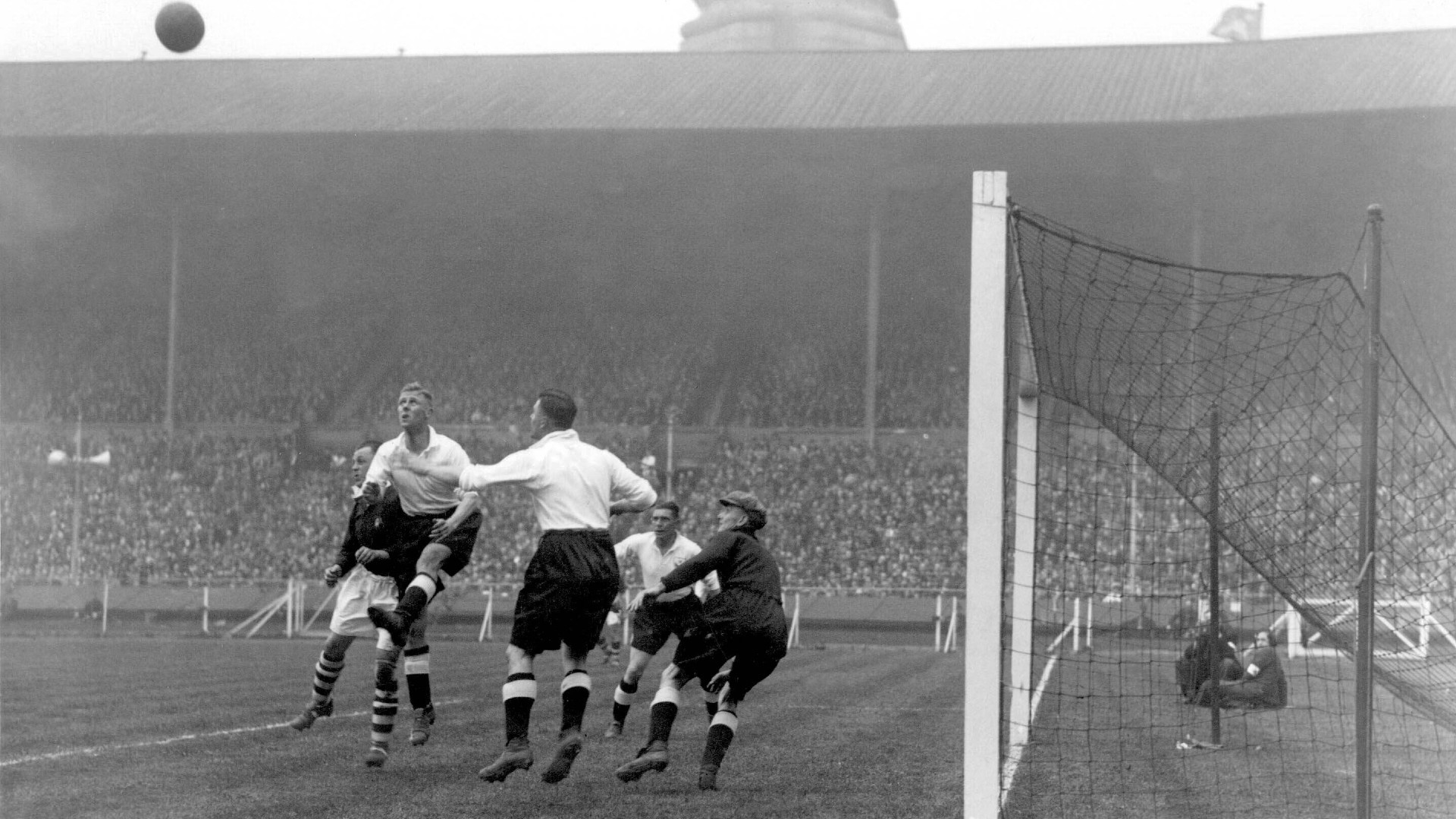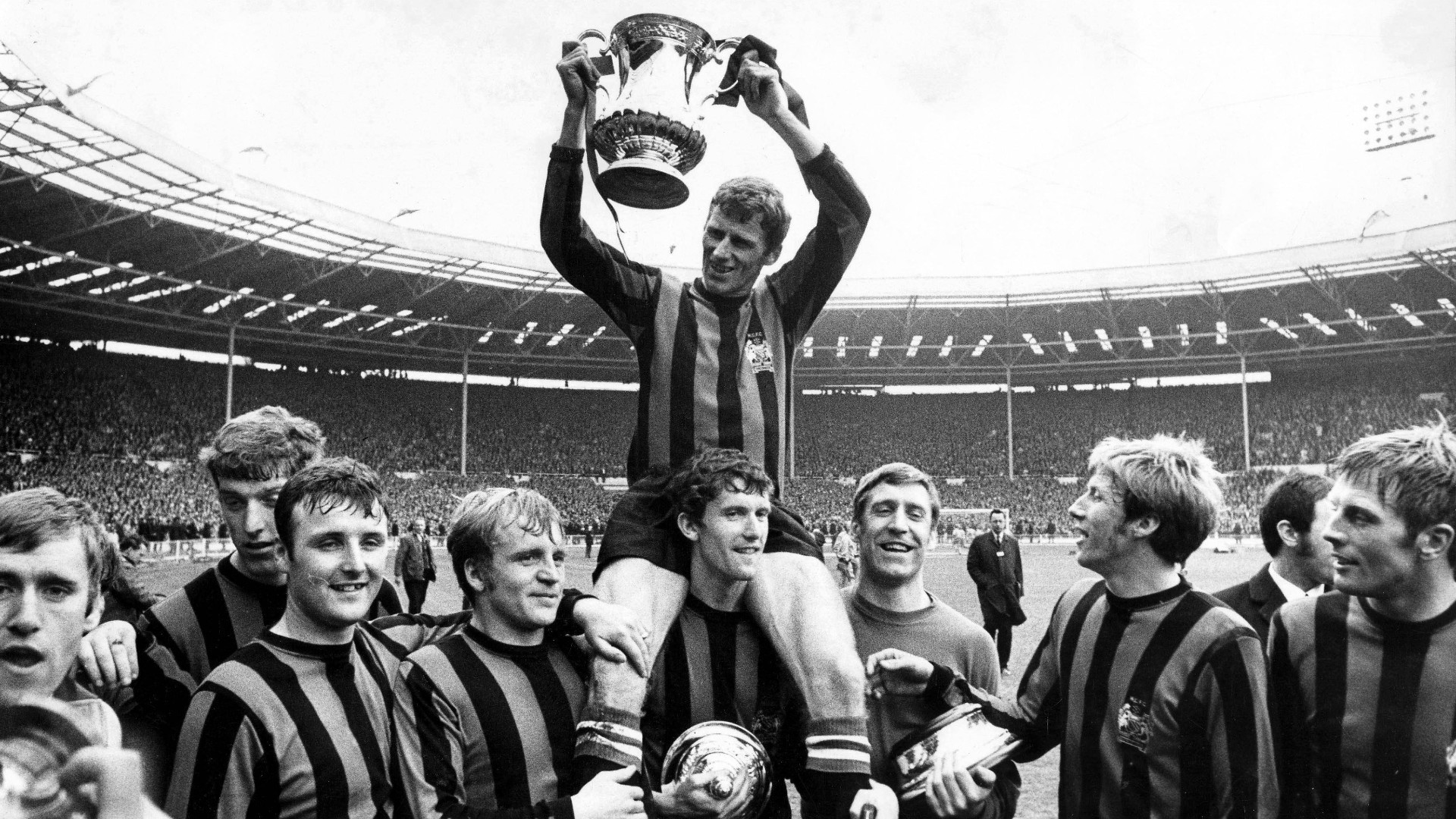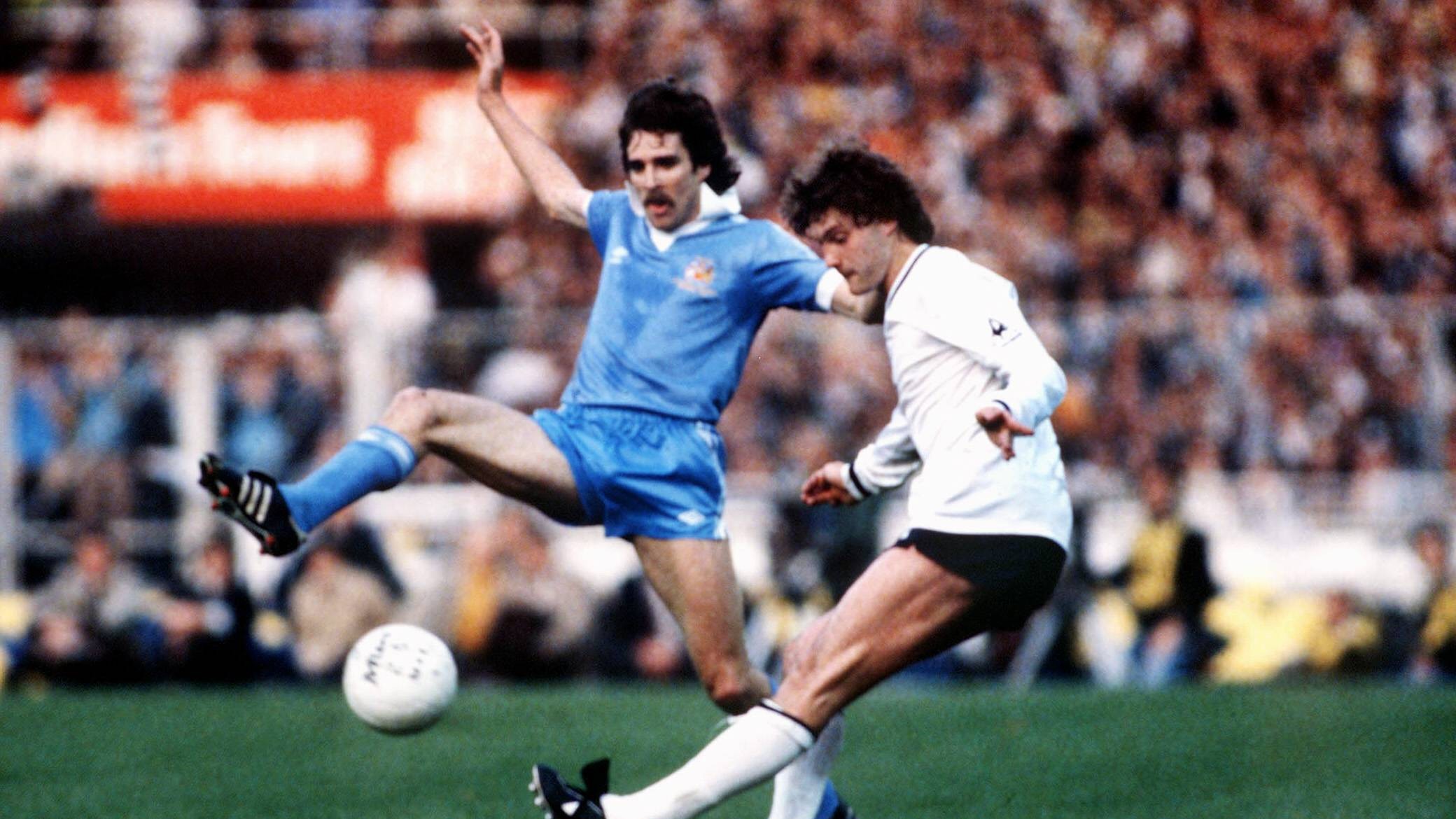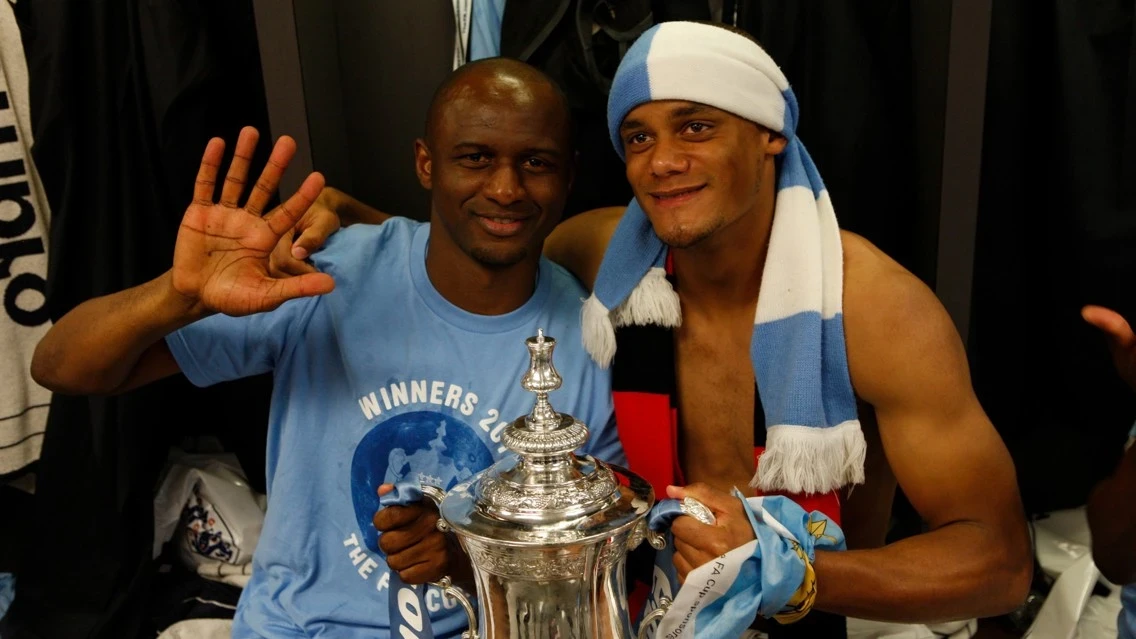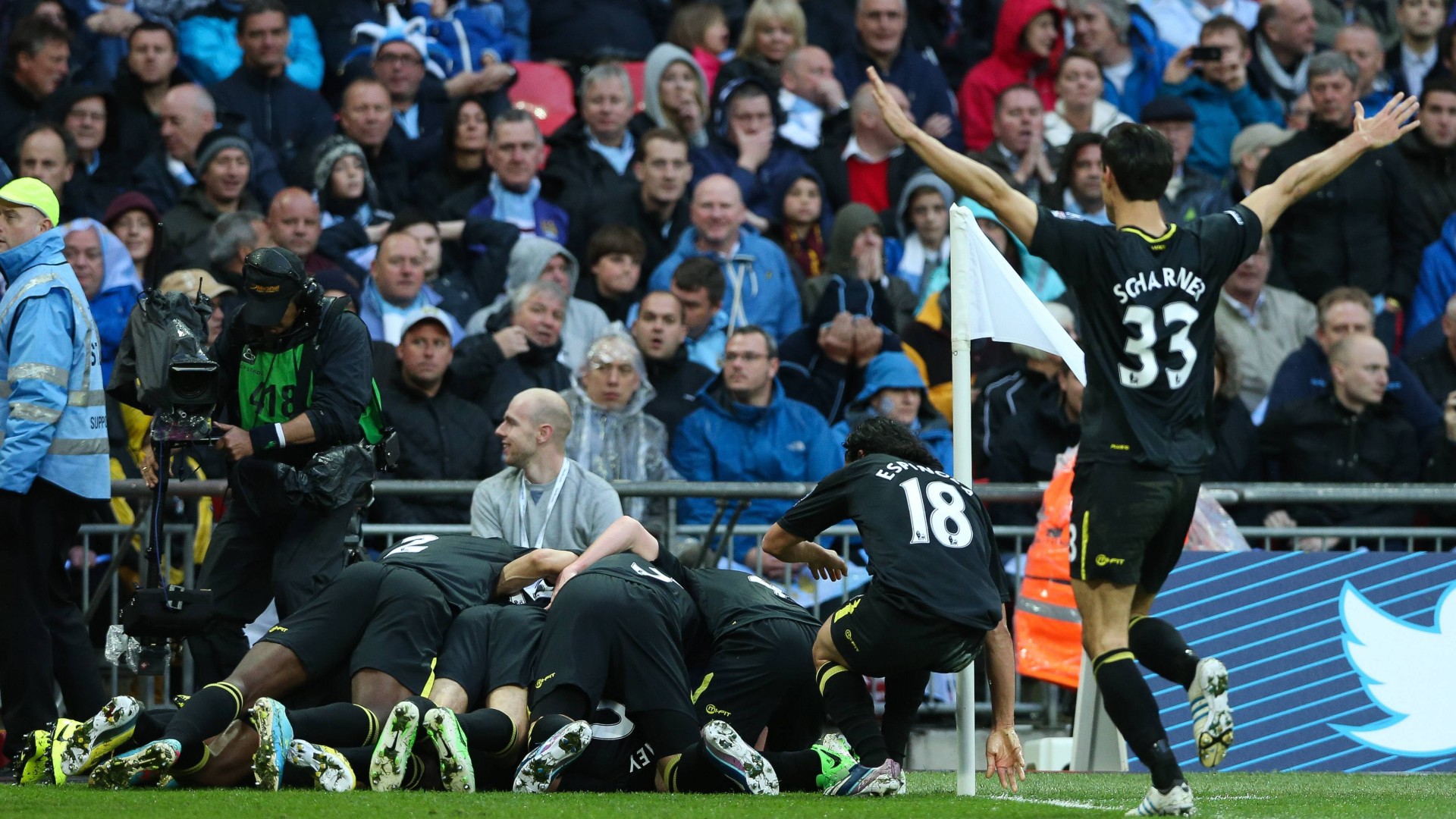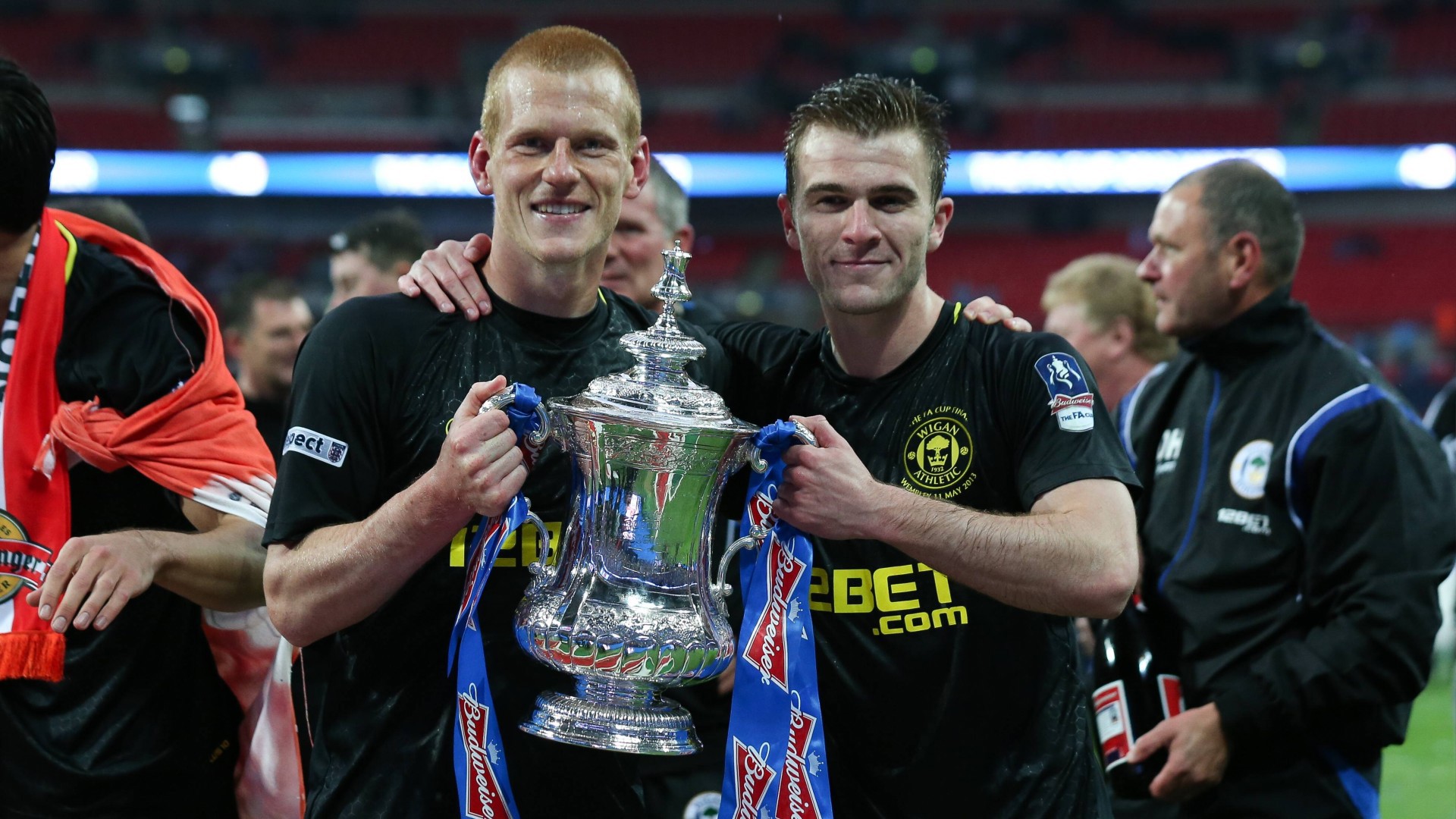The Blues face Crystal Palace at Wembley Stadium on Saturday 17 May, with kick-off set for 16:30 (UK).
This will be City’s 14th appearanceat this stage of the tournament, the fifth in most FA Cup final outings played in English football history.
Below are the highs and lows of the Club’s past 13 ties...
FIRST MAJOR HONOUR (1904)
Our first appearance in an FA Cup final also brought our maiden major honour after beating Bolton Wanderers 1-0.
We entered the tie chasing a league and cup double, although we were pipped to First Division title by The Wednesday – now Sheffield Wednesday.
Played in front of famous guests Prime Minister Arthur Balfour and legendary cricketer WG Grace, captain Billy Meredith scored the only goal of the game.
It arrived in the first half when he weaved through a number of Bolton bodies and fired home.
Our opponents produced a late onslaught on our goal, but we produced a strong defensive display to record a famous day in the Club’s history.
WANDERERS’ REVENGE (1926)
It took 22 years until City reached our second-ever FA Cup final and after waiting over two decades, we would meet Bolton Wanderers yet again.
The showpiece represented our first at Wembley Stadium after our success over our fellow Lancashire side in 1904 was played at Crystal Palace.
This time though, our opponents were in the First Division whereas they were operating in the second tier during the previous encounter.
Interestingly, the Blues reached the final and played the majority of the season without a manager.
David Ashworth had held the position, but was relieved of his duties in November 1925 and the Club’s chairman and board of directors selected the team for the rest of the term.
In the FA Cup, our then-vice chairman, Albert Alexander Senior managed the team to the showpiece – but Bolton’s David Jack scored the game’s only goal, helping them to a 1-0 success.
Alongside missing out on the trophy, we were also unfortunately relegated before Peter Hodge was appointed as manager.
BACK-TO-BACK (1933 & 1934)
City reached the 1933 FA Cup final following victories over Gateshead, Walsall, Bolton, Burnley and Derby County.
In our way was the previous season’s First Division champions Everton who still had legendary figures such as Dixie Dean in their ranks.
And the Toffees’ quality prevailed on the day when goals from James Stein, Dean and Jimmy Dunn secured the trophy for Merseyside outfit in a 3-1 victory.
In the crowd that day was Frank Swift, who had paid for a ticket like all the thousands of other City fans in attendance.
He then started for the Blues in goal 12 months later as we reached back-to-back finals – this time we faced Portsmouth.
Septimus Rutherford gave Pompey the lead at Wembley in the 28th minute and that goal looked to have won the south coast side the cup before a double from Fred Tilson flipped the match on its head before full-time.
Overwhelmed by the occasion and 2-1 success, Swift – who went on to become one of the Club’s greatest ever goalkeepers – fainted at the final whistle as we won the trophy.
Concerned with the wellbeing of our goalkeeper, King George V sent a telegram to City after the match to enquire about Swift’s health.
What’s more, Tilson’s double helped him to become our highest goalscorer in the FA Cup of all time.
BOUNCING BACK (1955 & 1956)
Bert Trautmann played centre stage of the 1955 and 1956 FA Cup finals.
In the first of another back-to-back finals, firstly against Newcastle, the legendary goalkeeper became the first German to feature in the historic competition’s showpiece.
On that occasion, Jimmy Meadows suffered a match-ending injury and with substitutions not allowed, City played from the 17th minute with 10 players.
Undeterred, we equalised through Robert Johnstone after Jackie Milburn broke the deadlock for the Magpies inside the first minute – which, at the time, was the fastest cup final strike.
However, the task proved too much with fewer players on the field and the north east side eventually won 3-1 through goals from Robert Mitchell and George Hannah.
Using the disappointment to fuel our FA Cup run in 1955/56, we reached the final for the second straight season following victories over Blackpool, Southend United, Liverpool, Everton and Spurs.
Locking horns with Birmingham at Wembley – the match will mostly be remembered for Trautmann’s heroics.
In front of an estimated 100,000 spectators, the goalkeeper played the final 17 minutes with a broken bone in his neck.
Joe Hayes handed City the lead in the third minute before Noel Kinsey equalised 12 minutes later.
However, an excellent second-half display by Les McDowall’s side saw goals from Jack Dyson and Bobby Johnstone gave us a commanding 3-1 lead.
Looking to hold on for what was a fourth-ever major honour after the two previous FA Cups and the 1937 First Division title, Trautmann was on the receiving end of a hefty blow when diving at the feet of a Birmingham striker.
Again, with substitutes not allowed, the goalkeeper elected to stay on and help City avoid similar heartbreak from the year before.
Although in agony, he kept out Birmingham twice in the closing stages to seal the trophy and collect his winners’ medal.
RED AND BLACK (1969)
City’s 1-0 victory over Leicester in the 1969 final is forever etched in folklore for several reasons.
The win at Wembley that day was the first time the Blues had won a major honour in our iconic red and black striped kit and it proved to be our last triumph in the competition until 2011.
Club legend Tommy Booth scored the winner in a dramatic 1-0 win over Everton in the semi-final to secure our place in the showpiece.
He said: “So we got a corner in the last minute, I used to go up for corners anyway so I went up last minute.
“Mike Doyle who headed it down and it comes to my left foot and Neil Young and Franny Lee were saying ‘leave it, leave it’.
“I thought ‘leave it? You couldn’t hit a barn door today’. I swung my left foot at it and it went in the net and I thought I was going to die – I couldn’t breathe because everyone jumped on top of me.”
In the final, Young proved to be the hero for Joe Mercer and Malcolm Allison’s fine City side when he collected the ball from Mike Summerbee and fired past Peter Shilton.
That proved to be the game’s only goal as we held on for a 1-0 triumph over the Foxes.
Booth added: “[Young was] an unsung hero. We appreciated him, the players and the fans did. He just had a great left foot and if anyone could get a goal for you it was him. He had a tremendous goalscoring record.
“When you go up [to collect the medals], we didn’t know who was presenting it. I was like ‘what do you say to her?’.
“We go upstairs to get the medals and the cup.
“Tony Coleman was just in front of me and I was looking at what the lads were doing and they were just shaking Princess Anne’s hand and getting the medal off her.
“I shook hands, but Tony said ‘how’s your mum and dad?’.
“We were like ‘what are you doing?’.
“She said ‘they’re fine thank you’ and Tony replied ‘tell them I was asking about them, otherwise I’ll be looking for you!’”.
REPLAY HEARTBREAK (1981)
Although the 1981 FA Cup final with Spurs ended in disappointment, the crucial confidence a scintillating run to the showpiece provided in the First Division was priceless.
After suffering a difficult opening 12 matches of the league season where we failed to collect a single win, relegation looked a real possibility.
But victories over Crystal Palace, Norwich, Peterborough, Everton and Ipswich in the cup was a source of newfound belief among the group which propelled the Blues to 12th by the term’s end.
Booth played and scored in the fifth round win over Peterborough, but a combination of injuries and false promises meant he failed to appear in the competition again.
He explained: “I got injured for a couple of games then they played the semi-final. We won that.
“What got me was when we were going down on the train the day before Joe Mercer and Malcom Allison told me I was playing.
“I told my family. So we go down and tell me who’s playing and all the lads looked at me and I said ‘I didn’t hear my name’. They said ‘no, Tommy, you’re not playing – we decided against’.
“I got up and walked out the dressing room. When I went to the train station, a few lads said ‘Tommy what are you doing?’. I got on the train back home.”
A 1-1 draw against Spurs followed with Tommy Hutchison opening the scoring for City before the forward inadvertently scored an own goal to send the tie to a replay.
In the second meeting, Ricky Villa netted one of the FA Cup’s most iconic goals when weaving through our defence and firing home in an eventual 3-2 defeat for the Blues.
EUPHORIA (2011)
A significant day in City’s modern history as we ended a painful wait of 35 years for a major honour by beating Stoke 1-0 at Wembley.
Roberto Mancini’s side reached the final with a last-four victory over arch-rivals Manchester United with Yaya Toure’s goal the difference in another 1-0 win.
The Ivorian stepped up again the showpiece when he thundered home in the 74th minute to seal the success.
For Patrick Vieira, who entered the field in second-half stoppage time, he believes the success provided the springboard to where the Club is now.
He told mancity.com in 2023: “The favourite moment [at City] will be of course the FA Cup.
“I think that just took Manchester City to a different level and allowed the football club to be more ambitious.
“Sometimes the first trophy is always the difficult one and then you can build from there.
“But more than that I think it’s about the players that took the standing of hard work, of belief and the ambition to a different level.
“And I think that allowed the club to be where they are today.”
UNDERDOGS (2013)
City entered the 2013 FA Cup final looking to extinguish the disappointment of being unable to retain our maiden Premier League crown from 2011/12.
Although the showpiece was played before the end of the term, Manchester United’s points tally was mathematically impossible to better with two league matches remaining of the Premier League campaign.
We entered the fixture as heavy favourites against Wigan who were battling relegation away from the competition.
But against a valiant Latics team, we found it difficult to find the breakthrough and Pablo Zabaleta’s dismissal on 84 minutes sparked fresh life into Roberto Martinez’s side.
With the clock ticking into second-half stoppage time, substitute Ben Watson rose highest from a corner and headed home the only goal of the game, helping the Latics to a 1-0 win.
He told mancity.com: “It’s every young boy’s dream to play in an FA Cup final and score a goal and that’s what it was really.
“I was actually due to be on the edge of the box. Because Zabaleta was sent off and they had everyone back in the box there was need for me to be on the edge.
“I took corners in the past and my big thing with corners was I always wanted someone running across the front post because if the taker under hits a corner you’ve got someone to make it a good one.
“Although Shaun [Maloney’s] corner was fantastic, it was right on the money, but it was all of the cuff. I got across and the rest is history.”
HIT FOR SIX (2019)
Our 6-0 FA Cup final victory over Watford represented a memorable day for Pep Guardiola as he added the famous trophy to his illustrious honours list at the end of his third term at the Etihad.
After surviving an early scare when Gerard Deulofeu dragged an effort wide from close range, we dominated proceedings and broke the deadlock through David Silva and it was two before the break with Gabriel Jesus doubling our advantage.
Kevin De Bruyne extended our lead further and Jesus secured his brace soon after. A Raheem Sterling double then rubber-stamped the superb day at Wembley.
The success also completed our Fourmidables season – when we became the first English club to win all four domestic gongs in one campaign.
TWO OUT OF THREE (2023)
Ilkay Gundogan starred in our most recent FA Cup final appearance when his epic brace helped us to a 2-1 success over Manchester United en route to the Treble last season.
The German broke the deadlock after just 12 seconds with a sensational volley, making it the fastest goal in competition showpiece history.
Before half-time, though, our cross-city rivals equalised through Bruno Fernandes’ penalty after Jack Grealish was adjudged to have handled in the area after a VAR review.
However, Gudogan restored our lead shortly after the break when he expertly met a corner with a first-time effort which squeezed into the net.
Guardiola’s team then produced a strong defensive display to hold on for the famous trophy and two thirds of the eventual Treble after securing the Premier League title two weeks before.
Derby defeat (2024)
Our most recent appearance in the Wembley showpiece ended in a 2-1 defeat to Manchester United.
City had already sealed a record-breaking fourth successive Premier League crown the week before, but the double would ultimately elude us.
United took a two-goal lead in at the break after quickfire goals from Alejandro Garnacho and Kobbie Mainoo, with Jeremy Doku’s late strike proving a consolation in last year’s FA Cup final.
But the Blues have a chance to regain the trophy against Palace for an eighth time in our history this weekend.
CITY’S FA CUP FINALS
1903/04 | City 1-0 Bolton Wanderers
1925/26 | Bolton Wanderers 1-0 City
1932/33 | Everton 3-0 City
1933/34 | City 2-1 Portsmouth
1954/55 | Newcastle 3-1 City
1955/56 | City 3-1 Birmingham
1968/69 | City 1-0 Leicester
1980/81 | Spurs 1-1 City | Spurs 3-2 City (replay)
2010/11 | City 1-0 Stoke
2012/13 | Wigan 1-0 City
2018/19 | City 6-0 Watford
2022/23 | City 2-1 Manchester United
2023/24 | City 1-2 Manchester United

